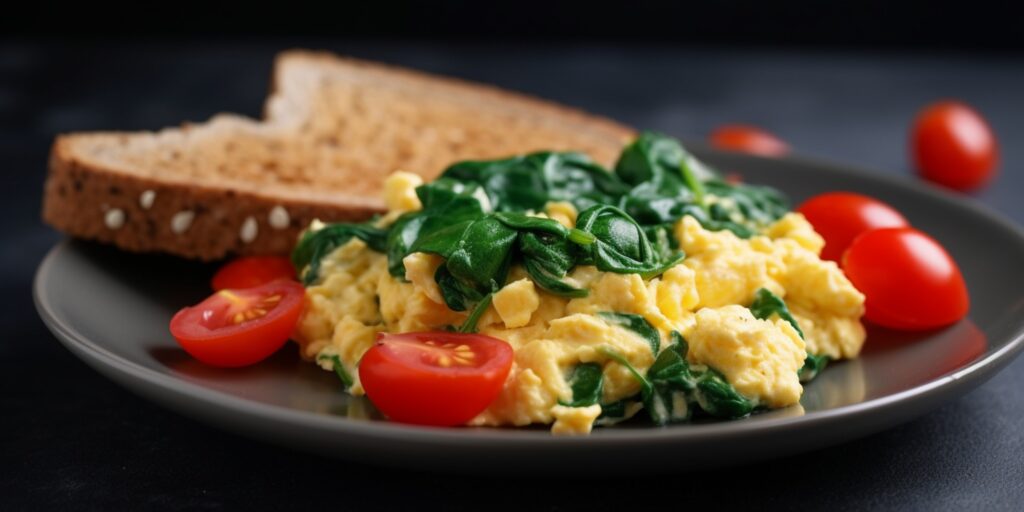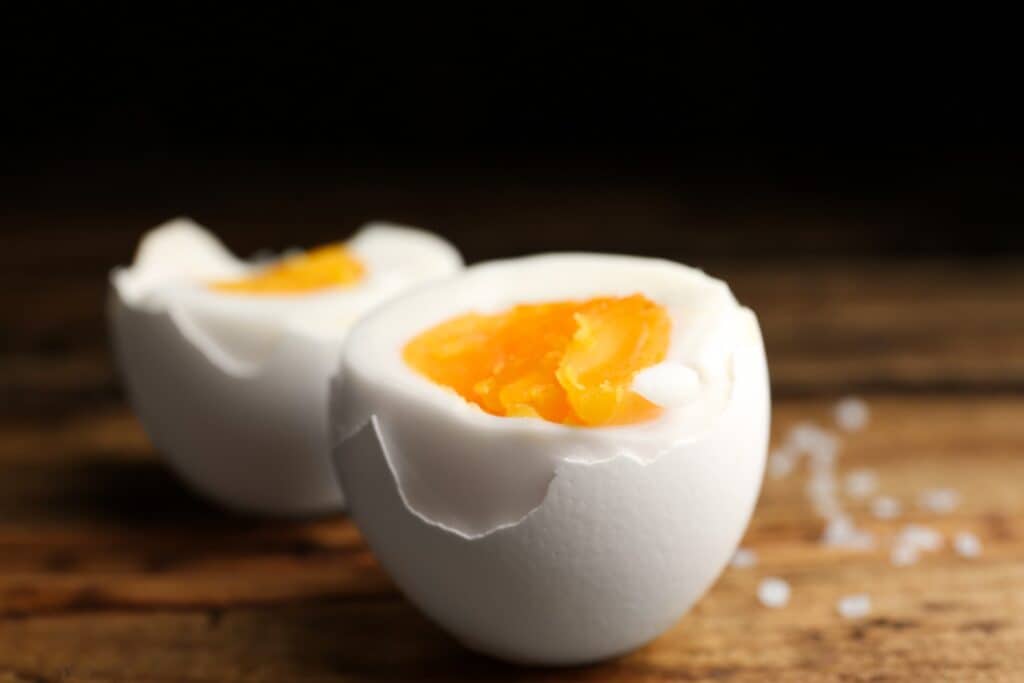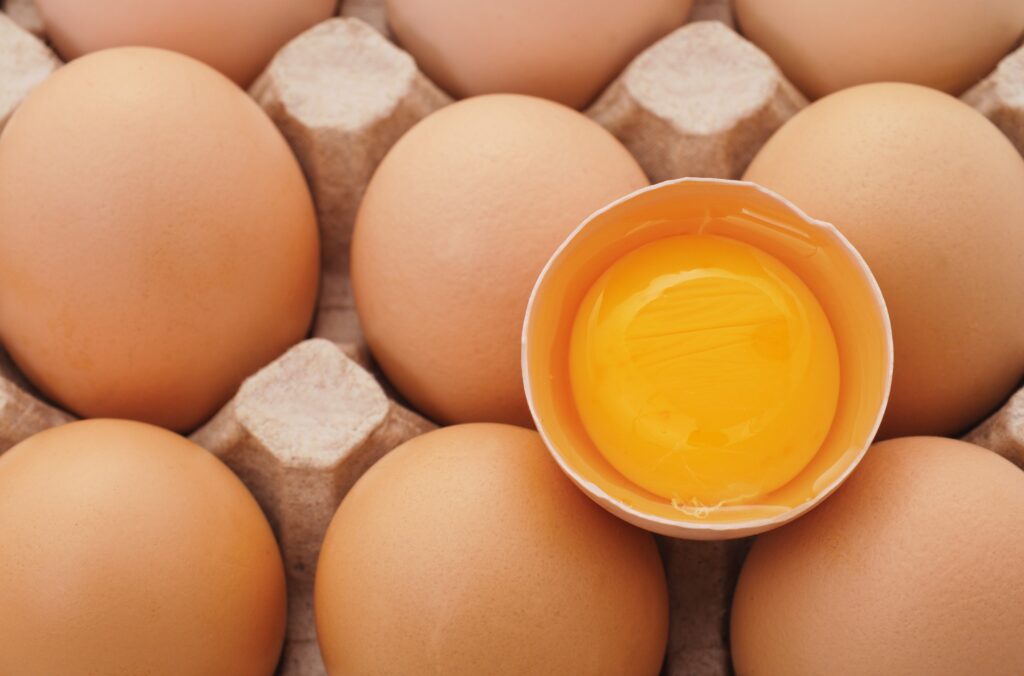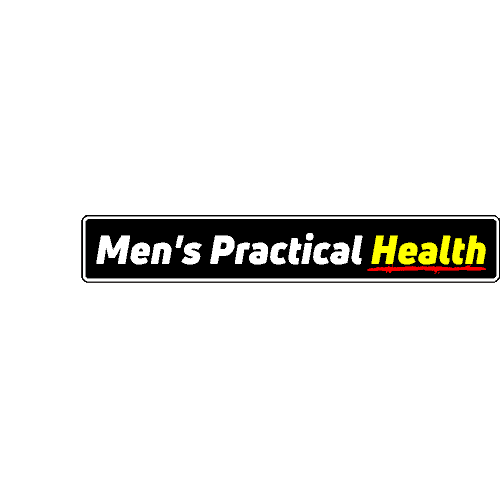Eggs are popular amongst many people, but are eggs good for you?
Truth be told, there has been, and still is, confusion about whether eggs are good for you or can cause health problems …
As you can see from these two professional doctors (video below) who have completely different views on eggs.
More recent studies have changed some of the negative thinking about eggs and their impact on human health, so in this article, we will look at the research so you can decide if eggs are for you.
Eggs are generally considered a powerhouse for protein consumption while also containing healthy fats and essential nutrients that can help with muscle gain and weight loss. Despite eggs previously being vilified, contemporary research has debunked older studies that claimed eggs are responsible for cardiovascular disease, and now it’s widely accepted that eggs are a beneficial part of any healthy diet.
Eggs are a staple in my personal diet, and I want to help others understand the benefits previously mentioned in a more detailed way and explain the unjustified bad reputation that eggs acquired due to misguided studies.

Before we dive in, I want to state that, as with anything, there are always positives and negatives to a particular food. So, while I am not saying that eggs have no downside, the evidence suggests that eating eggs has more positives than negatives.
Topics covered in this blog post include:
- Do eggs cause cardiovascular disease?
- How much protein does an egg contain?
- Why eggs are good for weight loss
- Why eggs are cost-effective?
- Eggs for muscle gain
- Should I eat the egg yolk?
- Incorporating eggs into a healthy diet
Do eggs cause cardiovascular disease?
The short answer is no. Due to its high cholesterol content, eggs have been blamed for contributing to cardiovascular illnesses for years. It was claimed, in a study called Blood Pressure and Risk of Coronary Heart Disease, that the cholesterol found in eggs was responsible for increasing blood cholesterol, causing heart problems.
However, more recent research has revealed no correlation between cardiovascular illnesses and egg consumption.
The reason for the older studies’ conclusion can be, according to a study, attributed to the lack of control over how much-saturated fat a subject had consumed and not taking into account people’s smoking habits that can affect a person’s cardiovascular health.
In fact, a study found that people who eliminated eggs from their diet to reduce cholesterol could increase the chances of other health issues, including the risk of eye Age-Related Macular Degeneration (ARMD).
How much protein does an egg contain?

“The Health Benefits Of Egg Protein” states that one large egg boasts 6.9g of protein.
While there is a myth that all the protein is contained in the egg white …
In fact, even though the egg yolk contains less than the egg white, it still holds 2.7g of protein compared with the 3.6g in the egg white.
Why eggs are good for weight loss
Eggs are an excellent food source to lose weight since they are low in calories yet help you feel full due to their high protein content.
Since eggs are satiating, they make avoiding overeating and unnecessary snacking easier, automatically lowering the calories you consume.
Why eggs are cost-effective
Since eggs are so cheap to buy, the overall benefits of adding them to your diet for weight loss and muscle gain surpass other protein sources.
Eggs are an excellent cost-effective source of protein such as meat, fish or dairy products, yet pack just as much protein per gram, if not more, than more expensive alternatives.
Eggs for Muscle Gain

Eggs are a champion food for anyone who wants to build muscle …
Just ask any bodybuilder.
Eggs are considered to be the ultimate protein food, delivering all nine essential amino acids your body craves.
The following amino acids are the building blocks of muscle tissue:
- Histidine
- Isoleucine
- Leucine
- Lysine
- Methionine
- Phenylalanine
- Threonine
- Tryptophan
- Valine.
Post-workout, your muscles are like sponges, ready to absorb protein for muscle synthesis and growth. Consuming eggs, arguably one of nature’s richest protein sources, provides your muscles with the nutrients they need to recover and grow efficiently …
Ensuring all your hard work at the gym pays off.
Should I eat the egg yolk?

Many people were told that eating egg whites is healthier and that the yolk will raise cholesterol, leaving you vulnerable to heart disease.
But before you throw away that beautifully coloured yellow yolk, realise this …
An egg’s yolk contains certain nutrients not found in the egg white. For example, the vitamins in an egg yolk improve the body’s immune system. These include:
- Vitamin A
- Vitamin E
- Vitamin K
- Omega 3
Incorporating Eggs into a Healthy Diet
Remember, eggs are not just for breakfast but can be enjoyed anytime.
Furthermore, eggs can be cooked in various ways, such as scrambled, poached, or boiled.
You can add them to your meals without getting tired of the same old routine.
For example, adding hard-boiled eggs to a lunch salad or making an omelette for dinner. This versatility makes incorporating eggs into your daily meals easy without getting bored.


